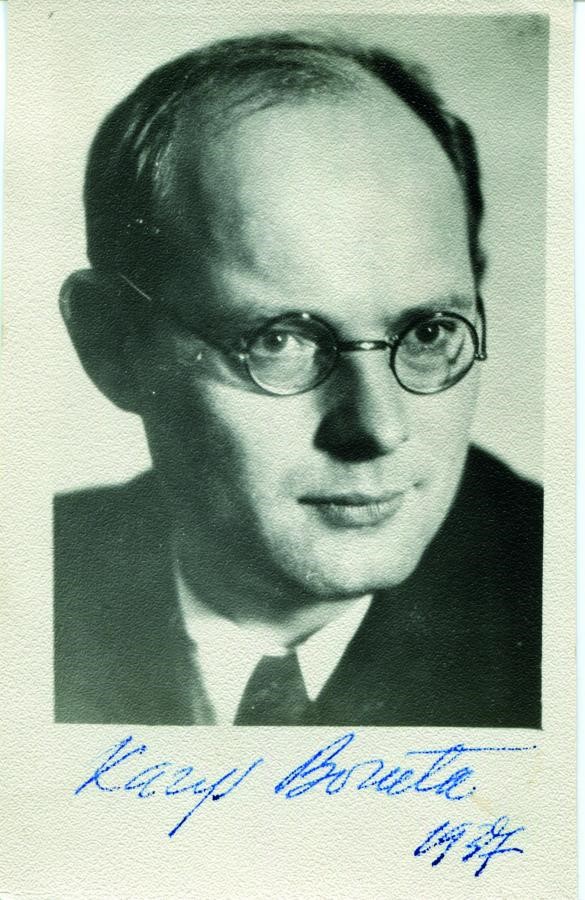Kazys Boruta is a famous Lithuanian novelist, poet and translator. During the interwar period, he belonged to the leftist organisation the Socialist Revolutionaries Union. In 1925, he was arrested for a short period, and in 1926 he left Lithuania. He lived in Austria and Germany, and cooperated with the Social Democratic press. He returned to the Republic of Lithuania in 1931, and was arrested again for illegal political activity, and sentenced to four years in jail, but amnestied after two years.
In 1940, Boruta enthusiastically welcomed the Soviet regime in Lithuania. However, his relations with the regime started to change, and became more and more complicated and tense. His famous novel Baltaragio malūnas (The Mill of Baltaragis), published in 1945, was strongly criticised for 'mysticism' and ignorance of the Soviet reality. (All the print-run was destroyed by the government.) In the end, in 1946, Boruta was arrested and sentenced to five years, but in 1949 he was released. He was ignored by the regime, and had many problems publishing his work. However, his situation started to change during the period of de-Stalinisation. In 1965, he was honoured with the title of cultural activist, and after his death the publication of his collected writings (ten volumes) started. The first volume was published in 1970, and the last in 1975.
To the Lithuanian intelligentsia and cultural activists, Boruta was an example of a rebellious artist, who protested against different political regimes for artistic autonomy and creativity.

